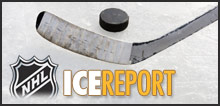
With NHL teams trying to sign a number of college players, here is an overview of contracts in the amount of years and compensation a college player can receive when deciding to turn pro.
Breakdown, Age Requirements and Compensation
Age Requirements
Under the current CBA, The length of a player’s first NHL contract is determined by his age at the time of signing. If a player is 21 years old or younger at the time of signing, he is obligated to sign a three-year contract. If a player is age 22 or 23 at the time of signing, he is obligated to sign a two-year contract.
If a player is 24 years old at the time of signing, he must sign a one-year contract.
If a player is age 25 or above when he signs his first NHL contract, there are no restrictions at all as he would not be bound by the Entry Level System.
Compensation
Under the current CBA are restrictions on the annual compensation that a player can receive on his Entry Level contract.
All contracts must be “two-way” contracts. This means that a player will have one salary that will be paid to him while he is performing at the NHL level, and a separate (much lower) salary while he is playing at the minor league level. In 2008 the maximum NHL compensation was slightly over $875,000 (this is a combination of a player’s signing bonus along with his NHL salary) per year, and the maximum minor league compensation is $65,000 per year.
According to the CBA bylaws a players maximum signing bonus can only be 10 percent of the $875,000 maximum annual compensation, which equates to a maximum signing bonus of $87,500 per year of the contract.
Two players on the Penguins radar are Tyler Bozka and Matt Gilroy.
Bozka has the opportunity to sign a two year deal worth almost $1.8 million over two years.
Gilroy on the other hand is 25 years old and doesn’t have to follow any requirements. He is free to name his own price which is believed to be $1-1.4 million per season.
